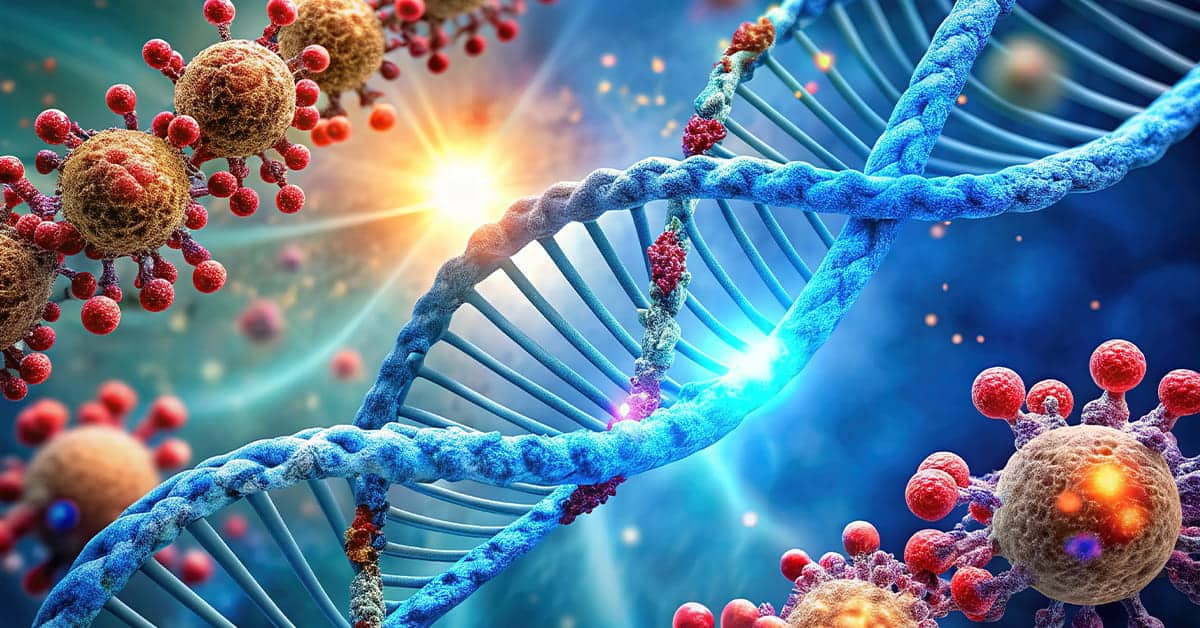by Dr. Peter McCullough, America Outloud:

Our show this week features Dr. John A. Catanzaro, N.M.D., Ph.D. CEO and Co-founder of Neo7 Bioscience. Our discussion is about mRNA and the protein products that can be made as designer peptides. His company produces N of 1 trial novel products largely for patients with cancer. This involves both genetic and proteomic profiling of the cancer and then the development of peptides designed to attack the cancer. Because each cancer is unique, Catanzaro believes this approach is necessary to personalize care and avoid the destructive impact of nonspecific, cytotoxic chemotherapy on the human body.
TRUTH LIVES on at https://sgtreport.tv/
In the second half of our interview, Catanzaro made specific observations about the mRNA technology used by Pfizer and Moderna in mRNA vaccines. Below is his outline of the problems he has observed mechanistically with the technology. Of all the scientists I have interviewed, Catanzaro makes a compelling case that reverse transcription has taken place in the mRNA vaccinated and that the human genome in those individuals has been permanently altered.
- Patient Molecular Datasets Demonstrate
-
- Working with large patient datasets and molecular aberrant protein surveillance, the following is observed:
-
- Patients vaccinated have higher destructive proteins involved in proinflammatory tissue changes that affect end-organ resilience.
- Patients vaccinated have RNA transcription amplification of dysregulated cytokine and immune regulators.
- Patients vaccinated have amplification of proliferative signal proteins and corrupt WNT and NOTCH genes and DNA mismatch repair proteins.
- Protein Signal Aberration
-
- Root signaling disturbances occur by errant ribosomal frameshifting (faulty transcription and translation) and retrotransposon signal activation initiating backsignaling and DNA splice integration.
- First in vitro study on the effect of COVID-19 mRNA vaccine BNT162b2 on human liver cell line. We present evidence on the fast entry of BNT162b2 into the cells and subsequent intracellular reverse transcription of BNT162b2 mRNA into DNA.
Additional:
- Unintended Immune Reactions
-
- The introduction of foreign mRNA can provoke immune responses that might not only target cancer cells but also harm healthy cells, leading to severe inflammation and other adverse effects.
- Off-Target Effects
-
- mRNA therapies may be designed to target specific cancer cells. Still, inaccuracies in targeting can adversely affect non-cancerous cells, causing unintended damage to healthy tissues and organs, as well as cell signaling aberrations, increasing the risk of accelerated mutation and causing aggressive advancement of cancer.
- Genetic Mutations
-
- There is a theoretical risk that errors in the transcription or translation processes could lead to genetic mutations, potentially driving the development of new cancers or other genetic disorders.
- Corruption of DNA and Protein Signaling
-
- Introducing synthetic mRNA into cells may disrupt normal cellular processes, corrupt DNA, and interfere with protein signaling pathways. This disruption can threaten the survival of healthy cells and potentially lead to further complications.
- Delivery Challenges
-
- Effective delivery of mRNA to target cells remains a challenge. Delivery vehicles like lipid nanoparticles can sometimes cause toxicity and trigger immune responses.
Read More @ AmericaOutloud.news



